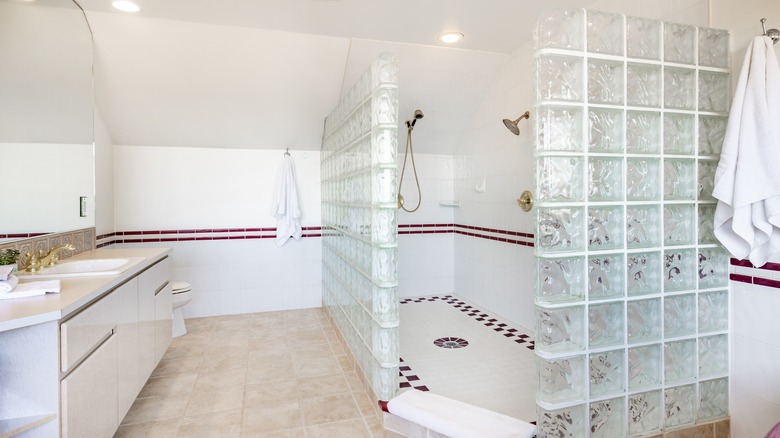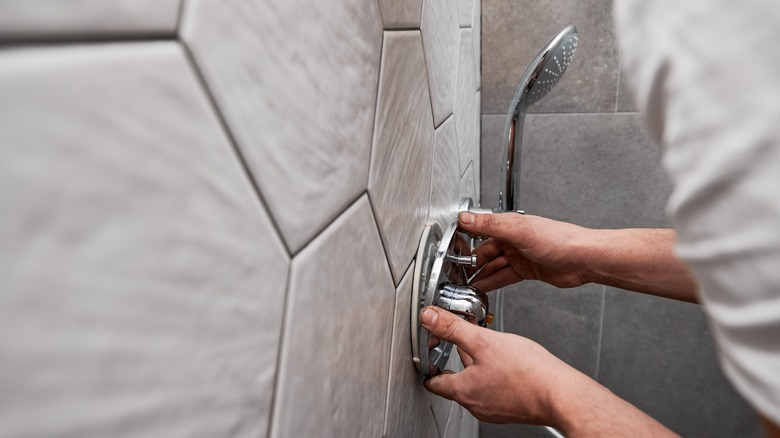Here's How Much It Could Cost You To Retile Your Shower
The shower is a vital part of your home, providing a space to wash off and start fresh; but showers need care and repair periodically, sometimes in the form of retiling. Whether you are investigating the costs of retiling your shower because it's in rough shape or simply because you want a change of scenery, there are many factors that determine the out-of-pocket price. A rough average for retiling your shower can fall anywhere between $800 and $3,000, which breaks down to $7 to $25 per square foot. But why the huge range?
Shower retiling costs come down to aspects such as the design of tiles you choose, whether you are doing the installation yourself or hiring a professional, and the size of the shower to be retiled. Generally speaking, material costs will fall between $3 to $25 per square foot, while labor costs for installation will be between $4 to $12 per square foot. Additional features, such as a small alcove to house shampoos and soaps, will necessitate you to budget more for this project. If you consider yourself particularly talented in home projects, learning how to retile your shower could certainly be within the realm of possibilities and may be tempting if you are trying to save on labor costs. However, given the fact that retiling the shower involves working with costly materials and requires creating a completely sealed environment that will continually be exposed to water, the DIY newbie would be best suited to hiring a professional.
Things to consider
Choosing the best shower tiles to use in your bathroom can be a dizzying process with so many options on the market. As a good rule, however, remember that standard-shaped and sized tiles (think rectangular and square tiles made from affordable ceramic) can save significant money compared to trendier options (such as oversized tiles, hexagonal designs, porcelain tiles, or very small mosaic tiles). Porcelain or glass tiles will be more luxurious options in your shower, and you can also expect to pay more money for their installation. Ceramic is a more approachable material if you are considering making this a DIY project.
Deciding on your shower's retiling budget is a choice that only you can make, but it can be prudent to remember that larger showers will be more expensive to retile. In this case, choosing more budget-friendly materials may be wise. Owners of smaller showers, however, may be afforded the luxury of entertaining fancier materials, since their overall cost to retile will be lower. Remember to consider the lifespan of the materials you choose, as well. Stone tile, for example, is stunning but can be damaged by constant exposure to water, as well as being susceptible to harm from cleansing products like shampoos and soaps. When choosing these pricier and more obscure materials, keeping up with maintenance and care will ensure the longest future together. For an unconventional departure from tiles, consider a plaster trend for shower walls.

